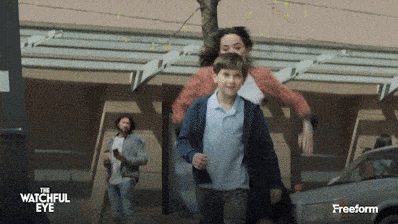- The Existential Compass
- Posts
- Bruised Steel, Broken Illusions: How Car Accidents Force an Existential Reckoning
Bruised Steel, Broken Illusions: How Car Accidents Force an Existential Reckoning
Existential Psychology Reveals Why Collisions Shatter Our Sense of Control – And How to Rebuild Meaning Through Mortality, Freedom, and Connection
A car accident isn’t just a physical event—it’s a brutal confrontation with existence itself. In the screech of twisting metal, the fragile illusions that cushion daily life—safety, predictability, control—are ripped away. Existential psychology, which studies how humans grapple with life’s fundamental tensions, frames these moments as portals to our deepest struggles: death, freedom, isolation, and meaninglessness. What feels like random bad luck becomes a forced dialogue with the human condition.
 | Ready to uncover your existential identity? |
1. Mortality: When ‘Someday’ Becomes ‘Maybe Now’
Existential Lens: Death anxiety isn’t just fear of dying—it’s terror of not having lived. A crash makes mortality visceral. Survivors often describe two reactions: paralyzing dread or a fierce urge to live urgently.
The Paradox:
Pre-accident: We numb death awareness with routines.
Post-accident: The “someday” myth collapses. Every moment feels borrowed.
What Helps:
Frankl’s “Tragic Optimism”: Acknowledge suffering while pursuing purpose.
Death Awareness as Fuel: Ask: If I died tomorrow, what would I regret not doing?
 | Ad: Visit HealoVerse to explore the AI-powered VR Psychotherapy in combination with at-home ketamine For PTSD related to car accident. 7 years of experience |
2. Freedom: The Agony of Choice
Existential Lens: Sartre said we’re “condemned to be free.” Accidents spotlight freedom’s dark twin—responsibility. Survivors obsess over micro-choices: If I’d left earlier… If I hadn’t glanced at my phone…
The Trap:
Guilt masquerades as control (“If I caused it, I can prevent it”).
Reality: Some outcomes are random. Freedom lies in response, not control.
What Helps:
Radical Acceptance: “I didn’t choose the crash, but I choose what comes next.”
Reclaim Agency: Small daily choices rebuild shattered autonomy.

Gif by thewatchfuleye on Giphy
3. Isolation: The Unspeakable Loneliness
Existential Lens: Yalom’s existential isolation—the unbridgeable gap between our inner world and others’. Post-accident, even loved ones can’t grasp the psychic aftershocks.
The Divide:
Pre-accident: Shared reality feels stable.
Post-accident: You inhabit a parallel universe of flashbacks and hypervigilance.
What Helps:
Bridge the Gap: “I don’t expect you to understand, but I need you to listen.”
Communal Rituals: Support groups where “me too” dissolves isolation.
|
4. Meaninglessness: When ‘Why?’ Has No Answer
Existential Lens: Frankl argued meaning is found in response to suffering. Accidents mock our hunger for reason—they’re often senseless.
The Crisis:
Pre-accident: Meaning feels inherent (“I’m here because…”).
Post-accident: The void whispers, “None of this matters.”
What Helps:
Meaning-Making: Not “Why did this happen?” but “What will I do because it happened?”
Altruism: Channel pain into helping others—mentoring, advocacy, art
Tips and Best Practices
The Road to Existential Resilience
Trauma strips life to its existential bones. But in that raw space, growth emerges:
Embrace Finitude: Mortality isn’t morbid—it’s the price of aliveness.
Rewrite Your Story: The crash isn’t the end; it’s a pivot point.
Touch the Wound: Avoiding pain prolongs suffering. Lean into it.
Choose Connection: Isolation heals when we risk being seen.
As Camus wrote, “In the midst of winter, I found there was, within me, an invincible summer.” The accident reveals that summer—if we dare to look.
Create your Free 4MEIA Account Today!
Feedback
Contact us with any questions or feedback. Click Here
|
This newsletter may include advertisements and affiliate links. We earn commissions from purchases made through these links, supporting our mission to provide you with valuable content.
This article is meant to provide general information and should not replace professional medical advice. Always consult your doctor to discuss the potential advantages and disadvantages of any treatment.


Reply